Rochesterians gather to celebrate Umoja Karamu, an alternative to Thanksgiving
During the first year of the pandemic, a group of Rochesterians got together to celebrate Umoja Karamu, an alternative to Thanksgiving designed to build community while creating and affirming Black traditions and history. While the holiday can be celebrated in the home as a singular event for individual families, Rochester's version is a communal event during which organizers pass out boxes full of food.
Rochester's Umoja Karamu celebration will continue this Saturday with the third annual food distribution. For the first time since beginning the communal celebration, organizers and volunteers with Rochester's Umoja Karamu will be able to meet in person for a celebratory dinner.
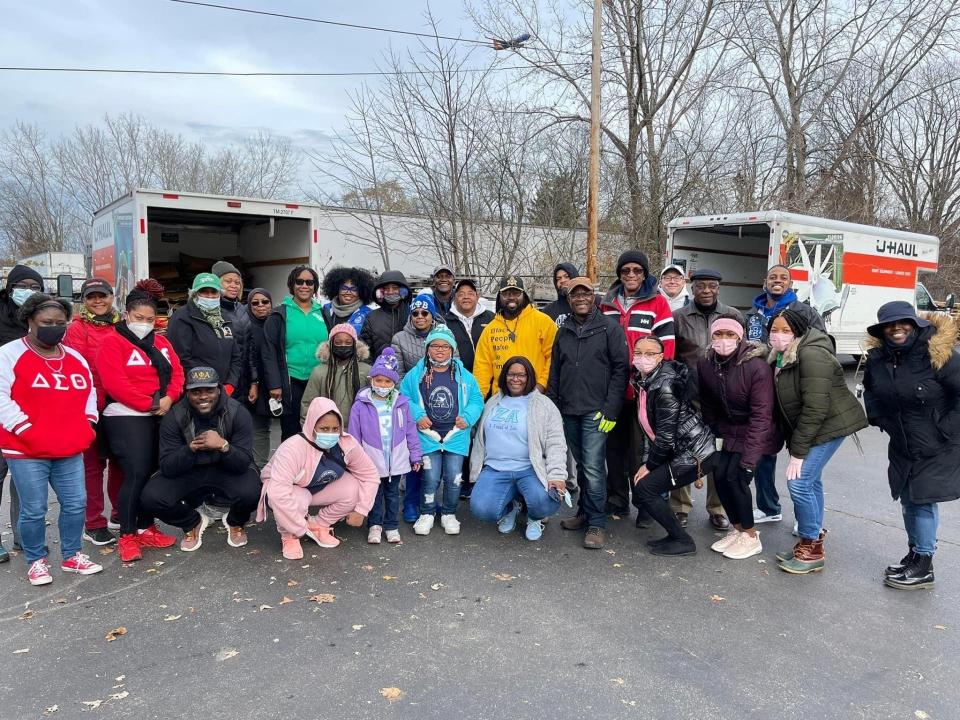
What is Umoja Karamu?
In 1971, Dr. Edward Sims Jr. of Philadelphia created and celebrated Umoja Karamu, Swahili for "unity feast." The holiday, initially only celebrated in Philadelphia and in Washington, D.C., aims to highlight and celebrate the history of the African Diaspora and of Black Americans. Now over 50 years old, Umoja Karamu is celebrated on the fourth Sunday in November as an alternative to Thanksgiving. In the five decades since its founding, Umoja Karamu celebrations have spread across the country with the distribution of the Umoja Karamu booklet, which was written by Sims Jr.
“Dr. Edwards Sims Jr. decided to create a Unity Feast, unity celebration to encourage Black folks to stop celebrating Thanksgiving because Thanksgiving is not our story,” said Dr. Lomax Campbell, one of the founders of Rochester’s Umoja Karamu celebration. “It’s not about Black people, it’s not about anything positive for people of color. It’s the slaughter of Indigenous people. So he said, ‘Let me create a holiday, a cultural holiday that honors our history.’”
Sims created a framework for the holiday that acknowledged five phases of Black life and history. Each phase aligns with a specific color and food item:
The first phase, Campbell says, is precolonial. The corresponding color is black and the corresponding food is black eyed peas. During this phase, African people were largely still in Africa, though there was also a diaspora that had left the continent on their terms. The phase represents Black life before enslavement and before colonialism.
The second phase is disruption, while the corresponding color is white and the corresponding food is rice. The phase, Campbell says, represents the disruption of African history and life, during which many Africans were forcibly enslaved, transported in the Trans-Atlantic slave trade and made to labor as slaves in the Americas. Those left behind were colonized during this phase. While rice was chosen in part because it is a staple for many Black households and a key side dish for many Black dishes, Campbell says it was also chosen because it was one of the crops enslaved people were forced to grow.
The third phase of Black life is resistance, while the corresponding color is red and the corresponding food is tomato. This phase represents the ways in which Black and African people resisted enslavement. The red represents the blood that was shed in fights for liberation.
The next phase of Black life is civil rights, while the corresponding color is green and the corresponding food is traditionally collard greens, though Campbell says that sometimes people prepare cabbage, broccoli or string beans instead. This phase represents the continued struggle for civil rights and equality following emancipation from slavery.
The final phase looks to the future of Black life; it is a hopeful phase. The corresponding colors are yellow/gold or orange, while the corresponding foods are either corn or sweet potatoes. This phase celebrates hope for the future and for coming generations.
The holiday seeks to use food, storytelling, quality time and creative expression — drumming, dancing, singing, poetry — to commemorate and celebrate the aforementioned five phases of Black life. There are primarily two ways to celebrate Umoja Karamu, according to the Encyclopedia of African-American Culture and History, including a home observance and a community observance. Both observances typically include prayer, libation to honor ancestors, readings and the enjoyment of the various dishes. Home celebrations are often tailored to fit families' personalities and unique histories.
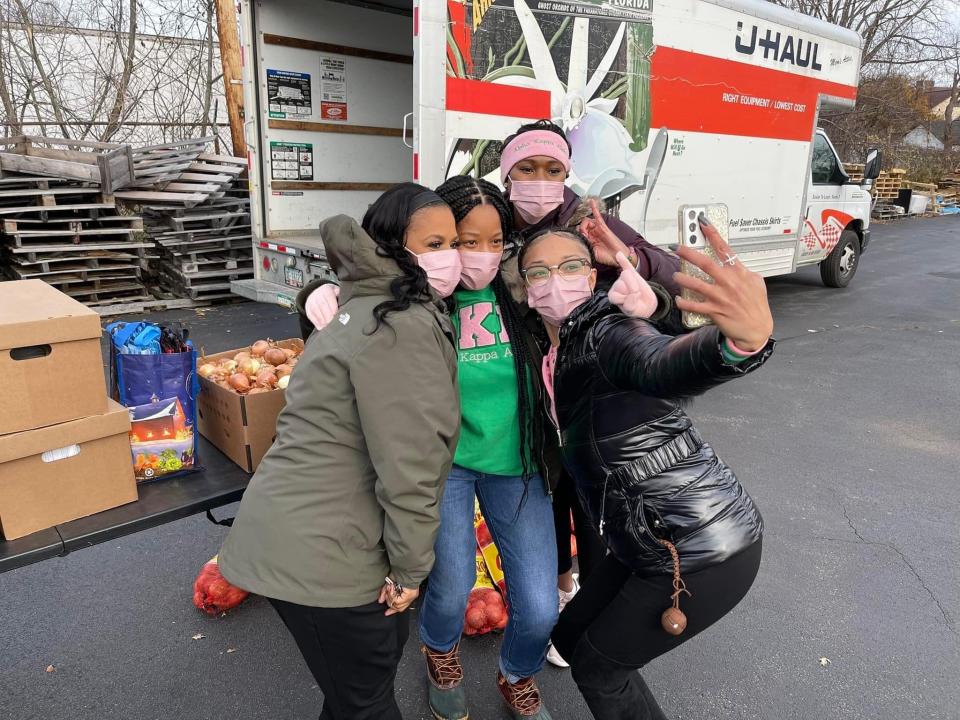
Feeding the stomach and the soul
Across the country, 2020 forced long-standing traditions and celebrations to take a break. People grieved not only the literal losses of life, but also the loss of community and togetherness. In Rochester, a group of men came together to take that collective grief and sadness and transform it into a celebration.
Campbell is a member of Sigma Pi Phi Fraternity, also known as the Boulé. In 2020, the local member Boulé, Gamma Iota Boulé, had a surplus of dues revenue because they were not able to hold their meetings during the pandemic. The members decided the best way to use that surplus was to invest it into the community. Campbell suggested combining immediate relief with cultural community education.
“I said, 'What if we gave away three hundred boxes of food connected to a cultural celebration that many of us don’t even know about? We don’t know our own heritage called Umoja Karamu,'” Campbell said.
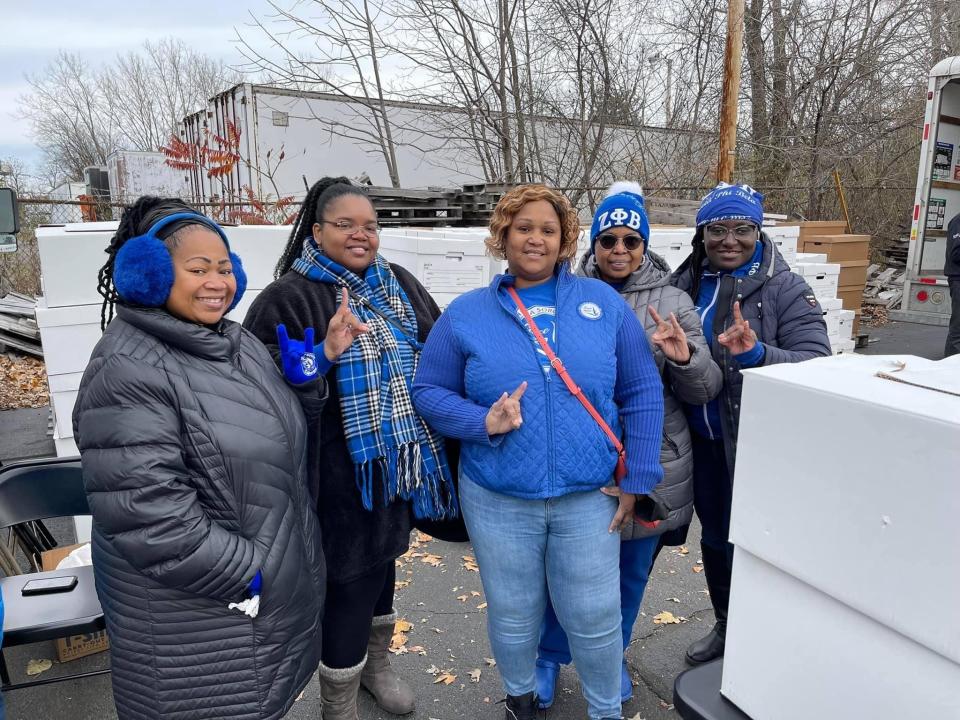
The Boulé liked the idea, and so a burgeoning celebration of Umoja Karamu was held in Rochester. With other participating organizations, they raised about $2,000 to be able to both culturally and literally feed Rochester.
Each box ultimately contained two bags of black-eyed peas, two bags of rice, two cans of stewed tomatoes, fresh ears of corn, fresh sweet potatoes, fresh collard greens and two whole chickens, Campbell said. In addition to nourishing people through food, the participating organizations decided to nourish them in other ways as well.
The boxes also included a pack of 10 masks, sanitizer and a booklet that they designed. The booklet included information about cleanliness, an overview and history of Umoja Karamu and a list of recipes for each item included in the box. The recipes were particularly useful for young families or people just getting started on their own who might not know how to cook.
During the 2020 Umoja Karamu celebration, after distributing the boxes the Saturday before Thanksgiving, organizers held a virtual celebration on Umoja Karamu proper, the fourth Sunday after Thanksgiving.
“People could have already eaten the food,” Campbell said. “We don’t care when they eat it because it’s their food. When we give it to them, it’s theirs.”
This year, the celebration is in person.
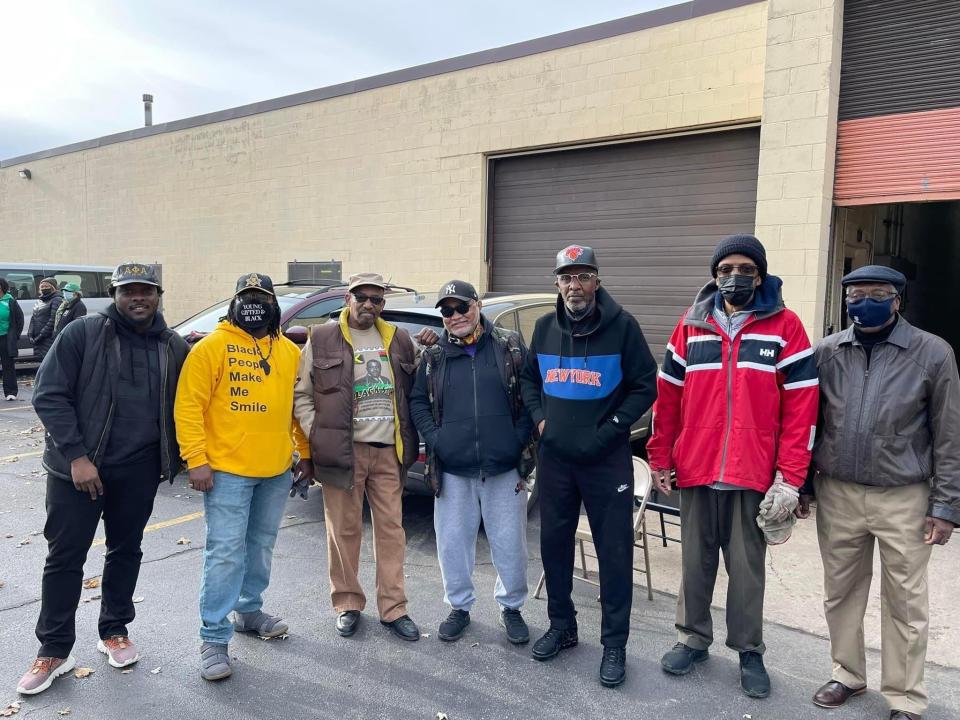
After volunteers gathered to pack the boxes on Nov. 18, the dinner giveaway was held Nov. 19. The boxes were packed with produce from local Black farmers including Donald Jones, the Will Moss Family, Deep Root Farm, Baldwin Richardson Foods and Stone Crop Farms. The canned and bagged goods were from Wegmans. TruForm Manufacturing allowed organizers to use their facility during the giveaway, while bioDrill and Third Eye Network, Campbell’s company, were other major donors.
Campbell and the Boulé have been able to make Rochester’s Umoja Karamu celebration into a partnership with many Black Greek Letter Organizations, or the Divine Nine, including Delta Sigma Theta Sorority, Inc., in which his wife Ashley is a member; Alpha Kappa Alpha Sorority, Inc.; Zeta Phi Beta Sorority, Inc.; Sigma Gamma Rho Sorority, Inc.; Omega Psi Phi Fraternity, Inc.; Phi Beta Sigma Fraternity, Inc. and, as of this year, Alpha Phi Alpha Fraternity, Inc., in which Campbell is also a member.
“And so it’s growing,” Campbell said. “Our goal is to engage every Black Greek letter fraternity and sorority in Rochester in this collaborative effort to celebrate our culture.”
This year, on Nov. 22, Rochester’s Umoja Karamu celebration will be an in-person festivity for the first time. Campbell says that organizers are piloting a dinner, to be held in the Sibley building, for about 50 to 75 people. The event will feature all of the foods from Umoja Karamu. Northern Nola, a local Black-owned restaurant, will cater the event. In addition to the food, the event will have music, short-story reading, singing, poetry and a moderated panel of elders and young people from the community, which Campbell says will be the “main feature.”
The panelists will speak about each of the five periods of Black life, why they are special to them and what festival attendees can learn from history to make a better future.
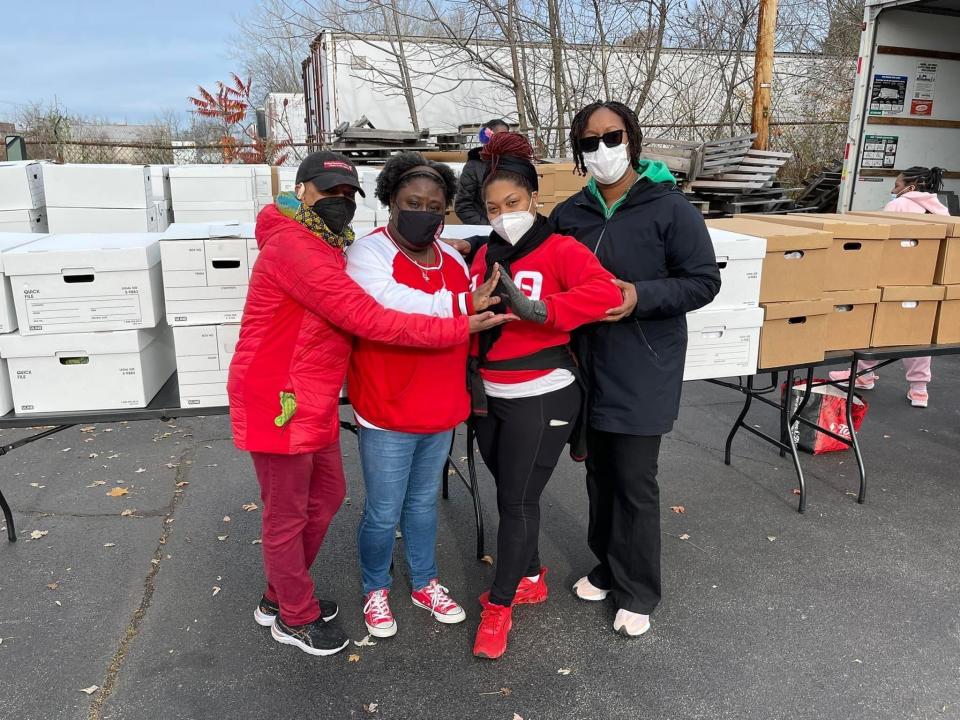
This pilot festival event will be reserved for the volunteers and sponsors, without whom the food giveaway would not be possible.
For more information or get involved, reach out to Rochester’s Umoja Karamu Facebook page, which is moderated by Ashley Campbell. Campbell asks that, in addition to liking the page, people indicate their willingness to be involved.
Umoja Karamu is born out of an ancient tradition, Campbell says.
“In ancient times, ancient civilization’s highest pursuit was the pursuit of wisdom, so that people of civilizations could live a full and free time,” Campbell said. “By wisdom, you could make wise decisions for yourself, your family, your village, for your nation. In recent times, the pursuit of material wealth has kind of taken away the pursuit of wisdom.”
The Umoja Karamu celebration, then, seeks to reaffirm and re-center the role of wisdom in community building. Utilizing storytelling and oral knowledge, they seek to help empower not only older and existing generations, but the ones to come as well.
“When we don’t know our history, we’re bound to repeat all of the errors and mistakes of our past,” Campbell said. “And ‘A people without history,’ as Marcus Garvey would say, ‘Is like a tree with no roots.’ So this celebration is so important to us because not only does it meet the people materially and address a real challenge, the food deserts in our community, but it also feeds them culturally and it builds relationships and community and it allows us to know ourselves collectively.”
This article originally appeared on New York State Team: What is Umoja Karamu, an alternative celebration to Thanksgiving?

